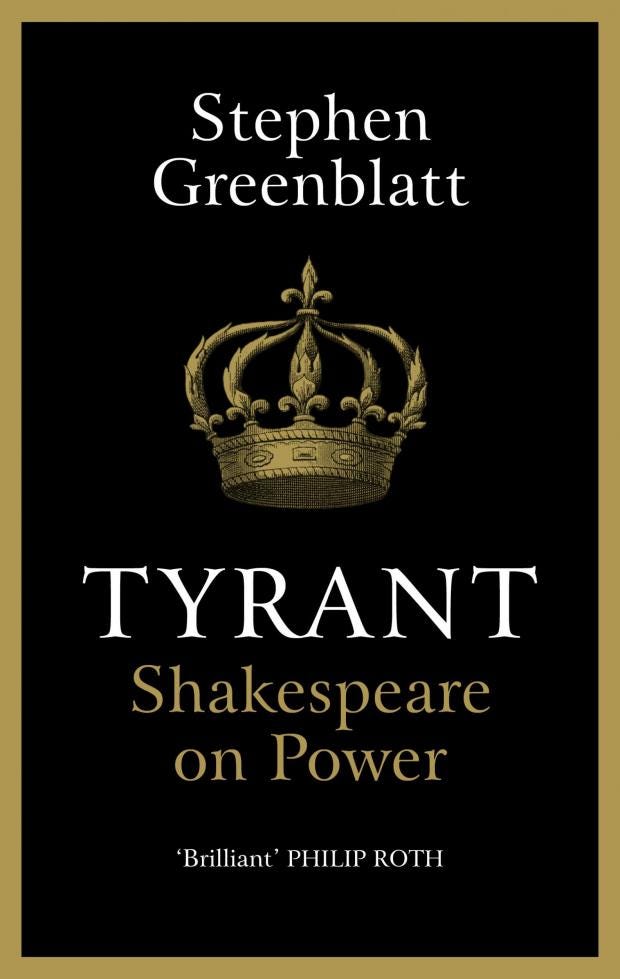Tyrant: Shakespeare on Power by Stephen Greenblatt, review: What Shakespeare's plays can tell us about Trump
The founder of new historicism illuminates our present political situation by analysing the traits of Shakespearean tyrants – and their mobs

What would Shakespeare have made of Trump? It’s one of the impish and fascinating questions at the heart of this nimble and intriguing study of the Bard’s lurid gallery of vicious despots.
Greenblatt is the Harvard Shakespeare expert who co-founded new historicism, the lit-crit practice that seeks to place works in their historical context. The 45th president is not mentioned anywhere by name in Tyrant, but the analogies are clear.
Shakespeare, Greenblatt explains, had to speak of authoritarianism in code, lest he lose his head on charges of treason. The Elizabethan period was a “fragile” era politically, haunted by the shadow of Roman Catholic terrorism. Greenblatt’s strategies, though, are transparently forthright, perhaps to the point of being a little forced, but they are never less than illuminating.
Tyrant was borne out of a New York Times article Greenblatt wrote just before the 2016 US election; he confesses to having been moved to extend it into a book after the election result confirmed his “worst fears”.
The ogres Greenblatt focuses on – Macbeth, Richard III, Lear, Coriolanus and Leontes from A Winter’s Tale – unsurprisingly exhibit a checklist of the obvious Trumpian traits: narcissism, impulsiveness, indecency, incompetence. They peddle in lies and, in the case of Coriolanus, collusion with foreign powers.
These parallels, though, while playfully toothsome, are less striking than Greenblatt’s other preoccupations. These include the role of the masses in the tyrant’s rise, the opportunistic and self-deceiving “enablers” in his court (who are invariably swiftly dispensed with), and how for the despot there is “remarkably little satisfaction”, or serenity, once the throne is taken.
In a passage that could equally be applied to the Brexit vote, Greenblatt hones in on the complicity of the masses, those who “take vicarious pleasure in the release of pent-up aggression, in the black humour of it all, in the open speaking of the unspeakable”. The masses for a period share the tyrant’s “gleeful contempt” for the common good. “Something in us enjoys every minute of his horrible ascent to power,” Greenblatt argues.
The spectre of ex-Trump honcho Steve Bannon hovers over Greenblatt’s musings on the figure of the real-life populist demagogue Jack Cade, a character from Henry VI: part 2. Cade foments anarchy with the promise of destroying the elite. ““The first thing we do, let’s kill all the lawyers,” one of his co-conspirators declaims, conjuring up Bannon’s alt-right vision of bringing the establishment “crashing down”. Cade sees himself as the “besom [broom)] that must sweep the court clean of ... filth”.
Shakespeare was, though, a wealthy member of the ruling class, Greenblatt asserts, a conservative with democratic leanings, with little taste for disorder. He expresses his ultimate faith in the elemental virtue of the citizenry over revolution. It’s a belief that chimes with the contentions of some key Trump analysts, not least ex-FBI director James Comey, who has argued that the most restorative way of toppling Trump is through the will of the people over the trauma of impeachment.
In Tyrant, Greenblatt demonstrates the enduring relevance of Shakespeare’s outlook as much as providing a commentary on the vices of Trumpism. Shakespeare’s voice rings down the ages, and, as with innumerable other human matters, we would do well to listen to it.
No comments:
Post a Comment